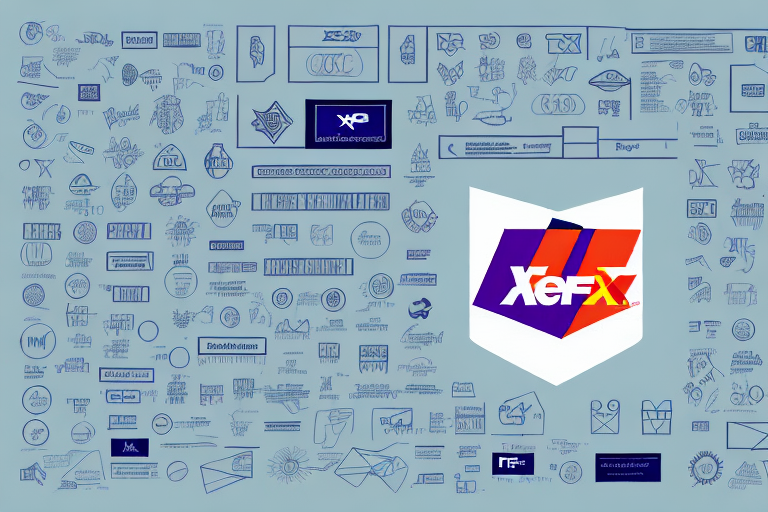Understanding Shipping Exceptions
In the shipping industry, exceptions refer to deviations from the standard shipping process that can impact the timely and accurate delivery of packages. These exceptions are inevitable due to various factors, including operational challenges and unforeseen events. Understanding the nature and causes of shipping exceptions is crucial for businesses to maintain efficient logistics and ensure customer satisfaction.
Definition and Importance
Shipping exceptions encompass any irregularities that disrupt the usual flow of shipping operations. They play a vital role in identifying potential issues within the supply chain, allowing businesses to implement corrective measures promptly. Effective management of shipping exceptions can lead to enhanced operational efficiency and improved customer experiences.
Common Types and Causes of Shipping Exceptions
Shipping exceptions can arise from multiple sources, each affecting the logistics process differently. Recognizing these common exceptions helps businesses prepare and mitigate their impact.
1. Address Issues
Incorrect or incomplete shipping addresses are a frequent cause of delivery delays. According to the United States Postal Service, address-related errors account for a significant portion of mail returns and delivery failures.
2. Weather Conditions
Adverse weather, such as hurricanes, snowstorms, or floods, can disrupt transportation networks, leading to delays. The National Centers for Environmental Information track and report weather events that impact shipping schedules annually.
3. Damaged Packages
Packages may sustain damage during transit due to mishandling or inadequate packaging. This not only delays delivery but can also result in additional costs for replacements or refunds.
4. Missorted Packages
Human errors in sorting facilities can cause packages to be sent to incorrect destinations, prolonging delivery times and increasing logistical complexities.
Managing Shipping Exceptions Effectively
Efficiently managing shipping exceptions is essential for minimizing disruptions and maintaining customer trust. Implementing robust exception management strategies can significantly enhance operational resilience.
Implementing Real-Time Tracking Systems
Utilizing real-time tracking and monitoring systems allows businesses to detect and address exceptions promptly. Systems like FedEx Tracking provide up-to-date information on the status of shipments, enabling proactive management of potential issues.
Establishing Clear Communication Channels
Maintaining transparent communication with customers regarding the status of their shipments is crucial. Automated notifications and updates help manage customer expectations and reduce frustration caused by delays.
Dedicated Exception Management Teams
Having a specialized team to handle shipping exceptions ensures that issues are resolved quickly and efficiently. These teams are trained to identify the root causes of exceptions and implement effective solutions.
Best Practices and Tools for Minimizing Exceptions
Adopting best practices and leveraging advanced tools can significantly reduce the occurrence of shipping exceptions. These strategies focus on enhancing accuracy, efficiency, and reliability in the shipping process.
Accurate Packaging and Labeling
Ensuring that packages are properly labeled and meet carrier requirements helps prevent sorting errors and delivery delays. Utilizing barcode systems and automated labeling tools can improve accuracy.
Address Verification Systems
Implementing address verification systems, such as UPS Address Validation, minimizes the risk of shipping to incorrect or incomplete addresses.
Investing in Shipping Software
Advanced shipping software solutions like ShipStation integrate with various carriers to streamline the shipping process, reduce human error, and enhance tracking capabilities.
The Impact of Shipping Exceptions on Business and Customer Satisfaction
Shipping exceptions can significantly influence both a business's operational costs and its relationship with customers. Understanding these impacts helps businesses prioritize effective exception management.
Operational Costs
Exceptions often lead to increased costs due to additional shipping fees, reshipping expenses, and potential losses from damaged goods. A study by Statista highlights that shipping-related costs can account for up to 10% of a company's total expenses.
Customer Satisfaction
Delays and damaged packages negatively affect customer satisfaction and loyalty. According to a report by Customer Contact Week, 79% of customers consider timely delivery as a key factor in their satisfaction with a purchase.
Future Trends in Shipping Exception Management
The shipping industry is continually evolving, with new technologies and methodologies emerging to enhance exception management. Staying abreast of these trends can provide businesses with a competitive edge.
Advanced Analytics and Machine Learning
Leveraging artificial intelligence and machine learning can predict potential shipping exceptions by analyzing historical data and identifying patterns. This proactive approach allows businesses to address issues before they escalate.
Blockchain for Enhanced Transparency
Blockchain technology offers improved transparency and traceability in the shipping process. By recording each transaction on a decentralized ledger, businesses can ensure the integrity and security of shipment data.
Automation and Robotics
The integration of automation and robotics in sorting facilities reduces human error and increases the efficiency of the shipping process. Automated systems can handle large volumes of packages with greater accuracy and speed.
Conclusion
Shipping exceptions are an unavoidable aspect of the logistics industry, but with the right strategies and tools, their impact can be effectively managed and minimized. By understanding the common types of exceptions, implementing best practices, and leveraging advanced technologies, businesses can enhance their shipping operations, reduce costs, and maintain high levels of customer satisfaction. Staying informed about future trends will further enable businesses to adapt and thrive in an ever-evolving shipping landscape.




















